
Exclusive | Paul Chan on housing: Hong Kong has land, but must cut red tape, reduce abuse to address woes
- Government is focused on resolving shortage, will act on Beijing’s call to eradicate ‘cage homes’
- Not hinting if he wants to run for city leader, Chan says: ‘I have a lot to do, I’ll do my best’
This is the first in a series of articles based on a wide-ranging Post interview with Financial Secretary Paul Chan Mo-po. Read part two here and part three here.
He also advocated a rethink of current plans for the area near Hong Kong’s boundary with Shenzhen, to identify more land there for housing and economic development.
“We have been exploring different possibilities to increase land supply. We are leaving no stone unturned. To increase land supply in a short time may be challenging, but we are looking at it actively to find possibilities,” Chan said in a wide-ranging interview with the Post earlier this week.
Land and home shortages are battleground issues in the run-up to the city’s leadership race next March, with Beijing officials repeatedly saying housing woes are the top priority for Hong Kong to resolve.
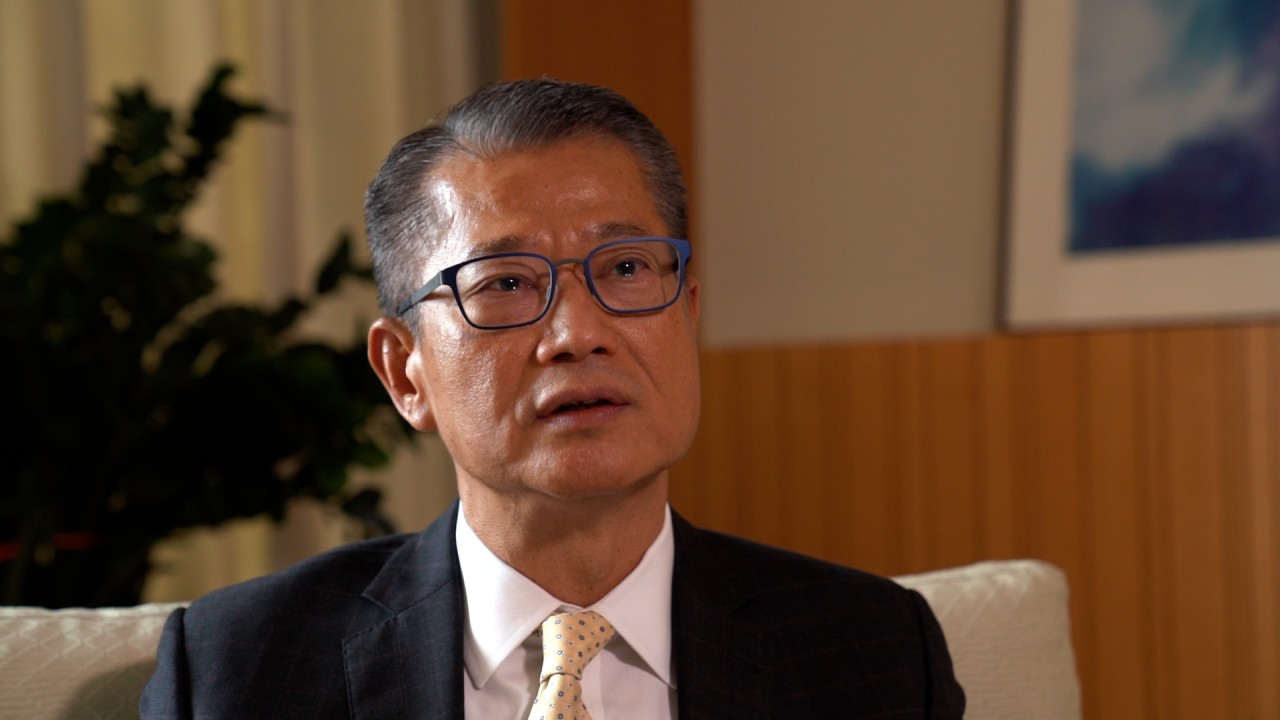
04:22
Hong Kong financial secretary Paul Chan on land and housing issue in the city
Some observers have viewed Chan as a potential chief executive, but when asked if he had any wish to be considered for the top job, he shrugged off the question without a yes or no answer.
Instead, he replied: “I shall continue to do my best in my current role because there is a lot to do. I will concentrate on giving my best.”
Some of the work on his plate has been put there by Beijing, which wants city authorities to get rid of cramped living spaces such as subdivided flats and tiny “cage homes”.
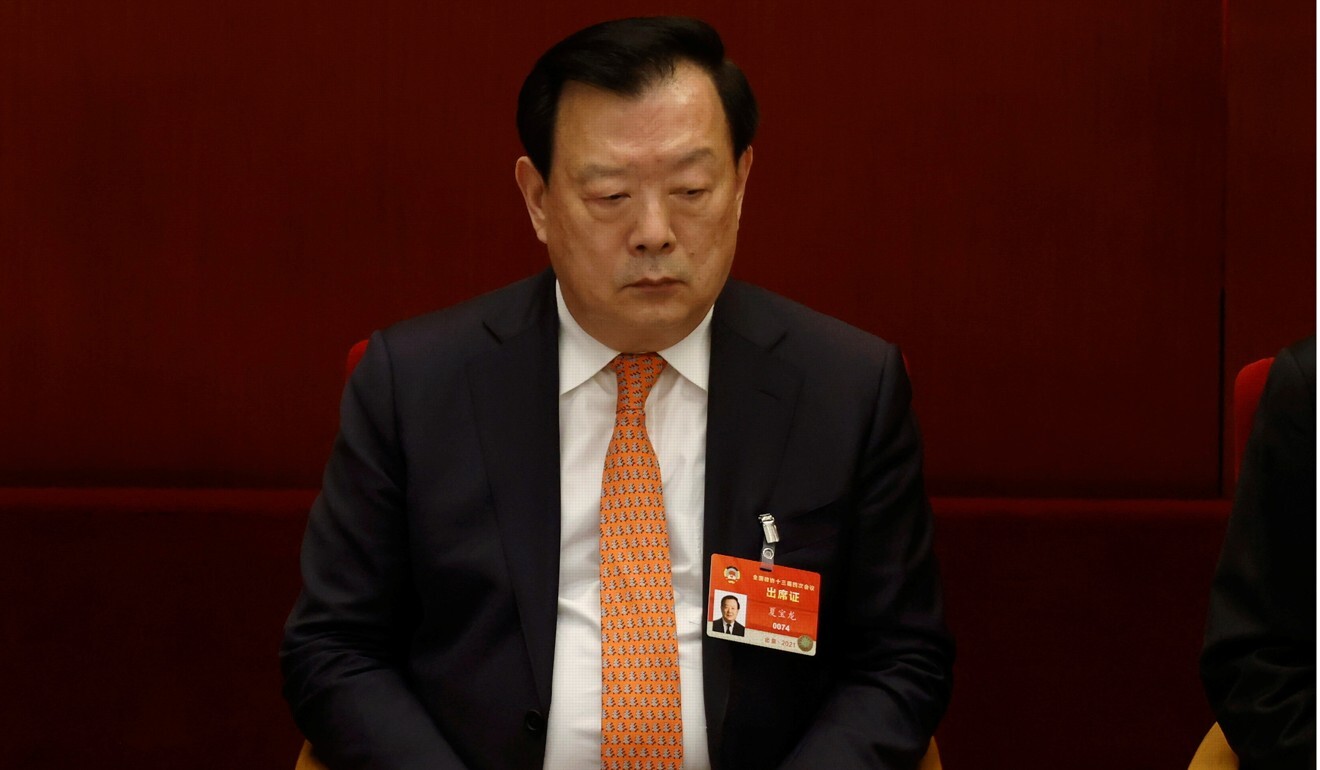
Last week, Xia Baolong, director of the State Council’s Hong Kong and Macau Affairs Office, shared his vision of a city free of such living conditions by 2049, the centenary of the establishment of the People’s Republic of China.
Many analysts believed that goal would be unachievable given the severe shortage of public housing. It is estimated there are more than 110,000 subdivided flats that are home to some of the city’s poorest residents.
But Chan said: “Director Xia’s comment about the living conditions in Hong Kong, particularly those in subdivided flats, concerns us very much.
“We in government of course will do whatever we can to erase … the unsatisfactory living conditions. We’ll do our very best to press ahead not just with land supply but also the construction of subsidised housing.”
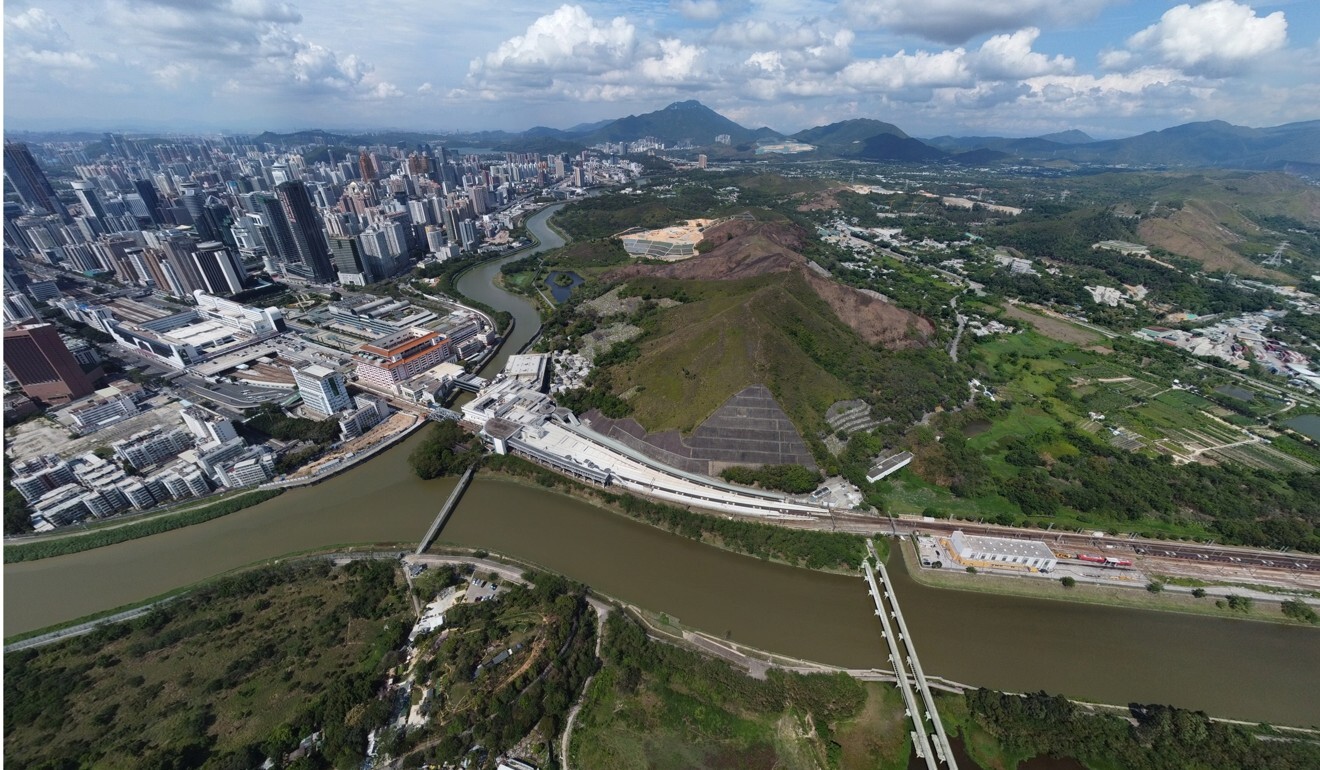
Chan, 66, who was secretary for development from 2012 overseeing such issues – until his appointment as finance chief in 2017 – pledged that Hong Kong would demonstrate resolve in tackling its housing shortage.
For starters, the government will in two months’ time unveil the latest estimates of land demand over the next two decades under the Hong Kong 2030+ study, and announce its supply plans with a clear timeline.
The last update of the land-use study in 2016 forecast a shortage of 1,200 hectares over the next three decades. That would be enough to build 342 Taikoo Shing estates. The residential area in eastern Hong Kong Island has more than 60 blocks and over 12,000 flats.
The government has announced a massive reclamation scheme off the waters of Lantau as a key solution, and Chan said that remained a good long-term plan.
Asked about a view held by some developers that Hong Kong’s problem was red tape rather than a shortage of land for near-term needs, he said: “I do think we have enough land for development.”
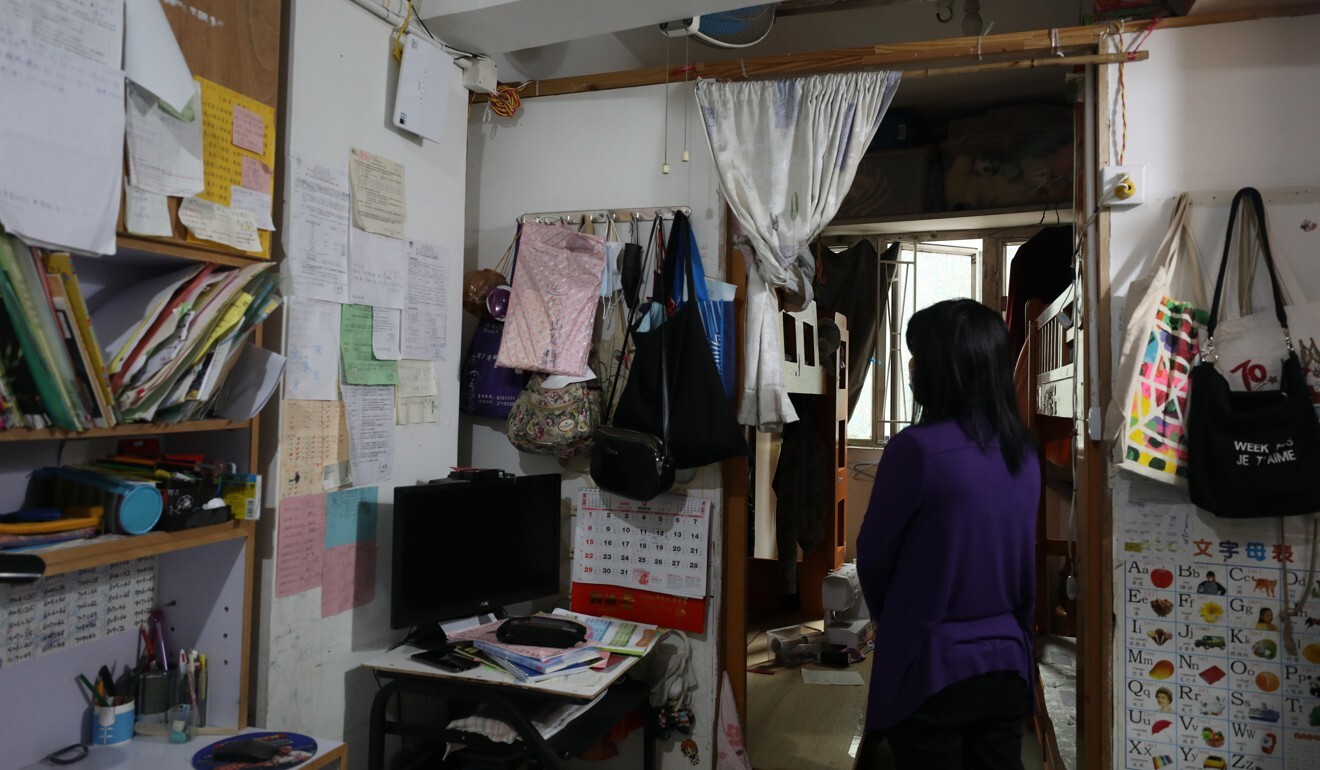
Chan, who steers an internal government committee on land supply, said a concerted effort was needed for sites to be supplied. “We will try our best to move forward, but at the same time, we need community support,” he added.
On the government’s part, a task force has been set up to streamline the internal processes of departments dealing with land and building, with officials also looking at ways to cut some statutory processes, including making amendments to the Town Planning Ordinance.
In the past, some major new town projects faced fierce opposition from locals and activists with concerns ranging from the preservation of villages to fears of increasing integration with mainland China.
We will try our best to move forward, but at the same time, we need community support
Hearings held by the Town Planning Board provided an avenue for the public to express their views or raise objections.
Chan served notice that the town planning law needed changes to be more effective and “to prevent abuse”, but did not provide specifics.
That worried Chan Kim-ching, leader of the Liber Research Community, a civic group focused on land-use issues.
Noting the law was amended in 2014 to increase people’s participation in town planning matters, he said any move to reduce the public’s input would be a step back, especially when the current political climate had resulted in fewer opportunities to voice dissent.

The financial secretary, an accountant and former lawmaker before joining the government, noted that community support was crucial, but recalled his experience in pressing ahead with various housing projects that encountered judicial challenges in his term as development chief. In one case, he inspected a site in Shau Kei Wan three times and decided he had to press ahead with the rezoning and land sales, as every unit counted.
“Land supply work can be very controversial involving different interests. I think it is very important for the government to be firm and resolute in pushing forward the initiatives,” he said.
Turning to plans for the area near the border with Shenzhen, Chan said there was more land that could be developed besides that already earmarked for housing, commercial and hi-tech uses. Part of the area has been set aside for conservation and ecological purposes.
He said plans for the whole border area should be reviewed, considering the city’s closer economic interaction with Shenzhen.
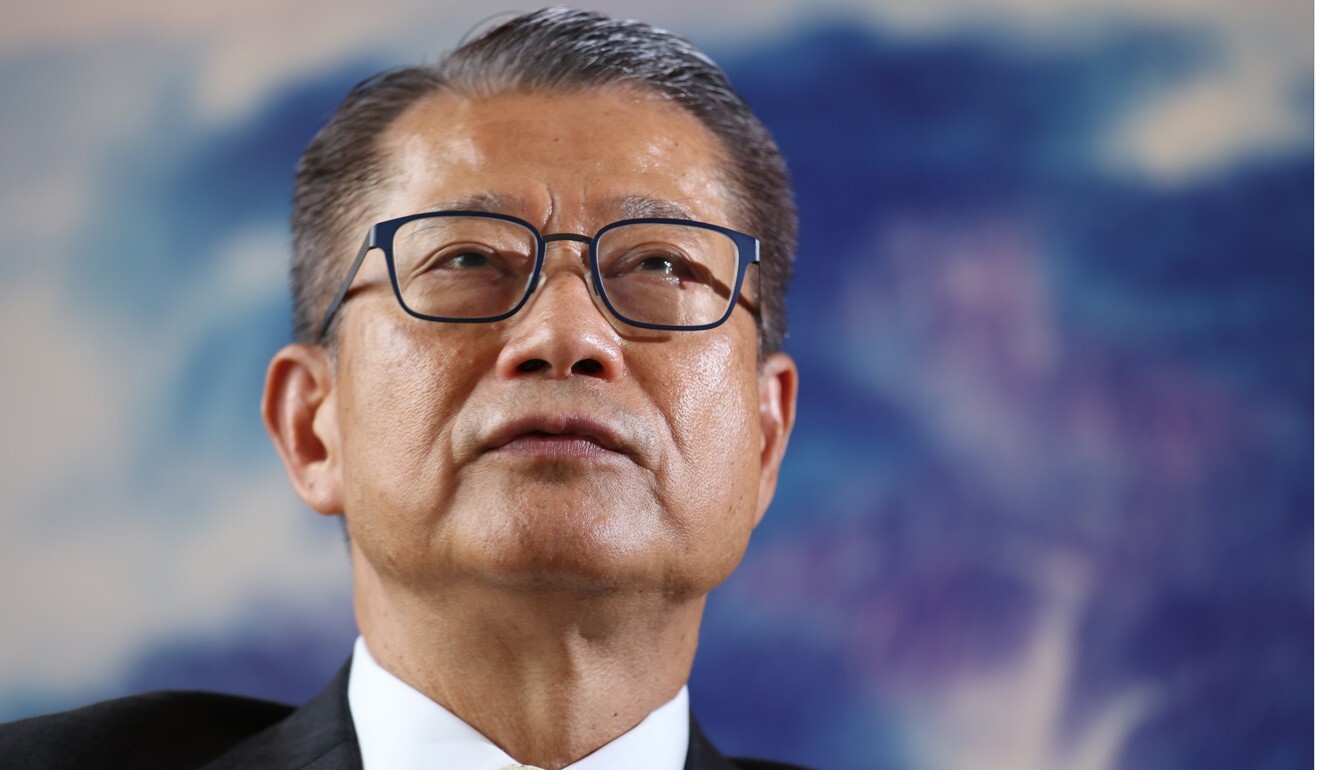
As for Hong Kong’s old districts, he pledged strong financial backing for the efforts of the Urban Renewal Authority.
Last month, the URA announced it would spend HK$100 billion (US$12.8 billion) over the next five years building 18,000 private sector homes. It said it had also completed a study into the redevelopment potential of Yau Ma Tei and Mong Kok districts, but more financial resources were needed to rebuild the area.
“The most important thing is for them to move different projects forward,” Chan said. “Financial constraints are not a consideration. They can borrow from the market, we can do the guarantee … Even if they are in need of a government injection [of funds], I can give it favourable consideration.”
Asked if having fewer prime sites to sell on the private market in the future could undermine the government’s land revenues, Chan said he was not concerned about that, noting it was never the administration’s policy to drive up land prices.
“The high land prices are a result of the shortage in supply,” he said. “If we are able to produce more land, even if it is in the New Territories, we won’t hesitate to sell it on the market, [and] it will generate revenue.”
“Land sales is an important source of revenue, but we do look at others,” he added.

